GBP/USD – 1H.
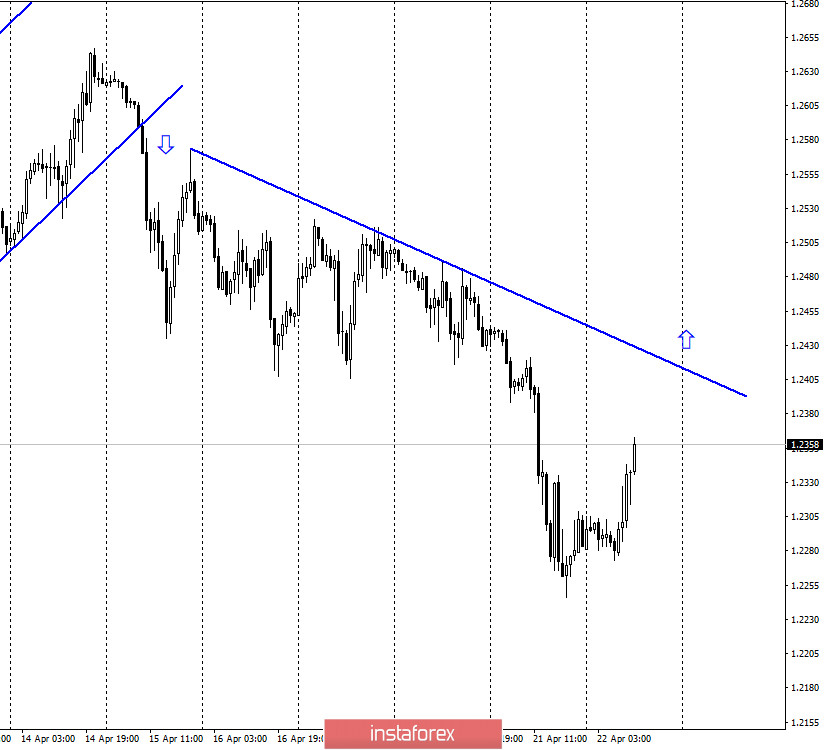
Hello, dear traders! On the hourly chart, the GBP/USD pair reversed, growing in the direction of the downward trend line, which is quite far from the current price level. The bearish bias persists mostly due to the trend line. Thus, a possible rebound from this line will enable the US dollar to assert strength. However, the quotes of the pair will drop again. If the pair consolidates above this line, the British pound will gain ground and the overall bias will become bullish. There is no fresh news from the UK save for the COVID-2019 epidemic. Over the past day, almost 1,000 people have died. It means that the country is still unable to reduce the death toll. Additionally, more than 130,000 people are infected. Human trials of the coronavirus vaccine have begun at the University of Oxford. If the vaccine gets efficacy results, it will be available by September. Earlier, there were reports that Britain had already started production of the vaccine, but it had not yet passed any tests.
GBP/USD – 4H.
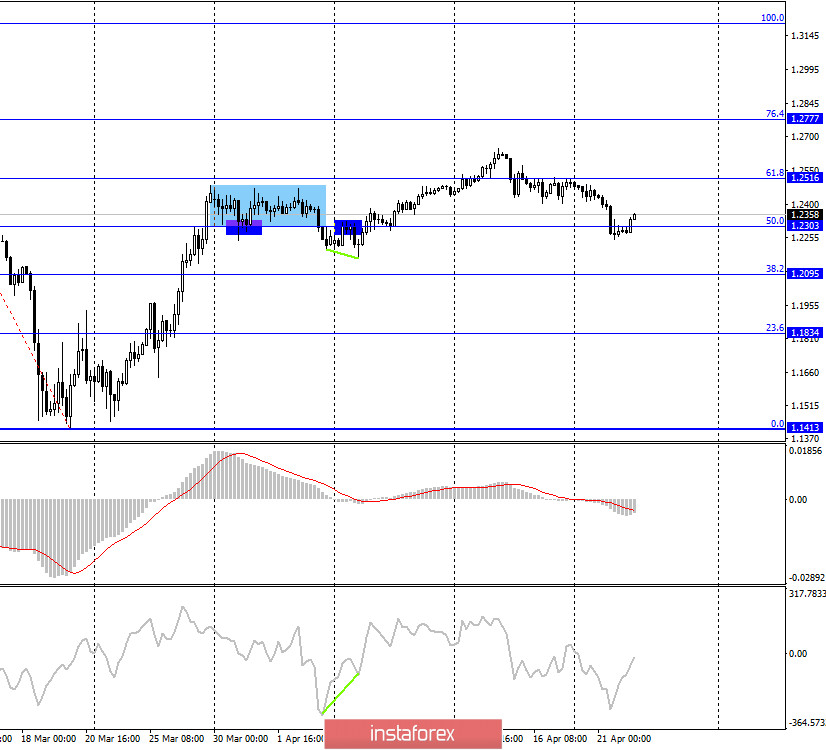
On the 4-hour chart, the GBP/USD pair consolidated under the correction level of 50.0% - 1.2303, but later it reversed in favor of the British currency and settled above this level. The pair may resume its rally on April 22 heading for the Fibonacci level at 61.8% - 1.2516. At the same time, the downward trend line on the hourly chart halts the upward moment of the pair. This line is now the most important signal for the future trajectory of the pair. Tomorrow, the pair is most likely to give more clear signals for its further movement, taking into account the downward trend line.
GBP/USD – Daily.
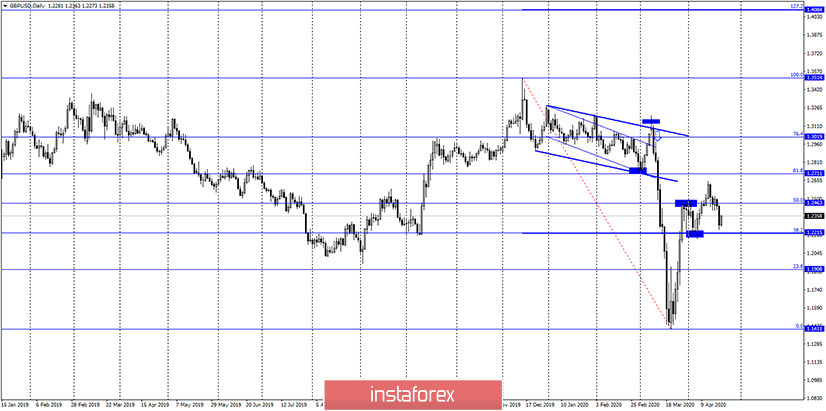
On the daily chart, the pair reversed in favor of the US dollar consolidating under the correction level of 50.0% - 1.2463. Thus, the pair may continue to move down to the next correction level of 38.2% - 1.2215.
GBP/USD – Weekly.
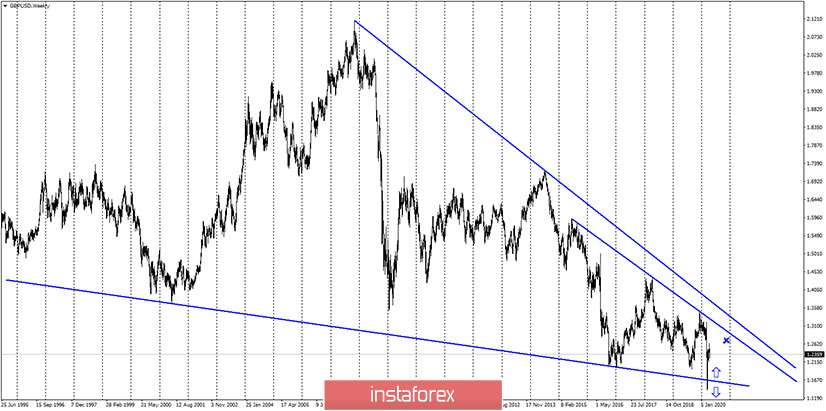
The economic calendar:
There were no economic reports in the US on Tuesday. The UK unveiled data on the unemployment rate (up by 4%), on average wages (shown a decrease compared to February), and on claims for unemployment benefits (better than expectations). However, despite positive reports during the coronavirus the crisis, the pound sterling slid down against the US dollar. Notably, today the pound resumed its growth while many investors expected the British pound to lose ground amid weak inflation in the UK.
The economic calendar for the US and the UK:
UK consumer price index (08-00 GMT).
COT report (Commitments of traders):
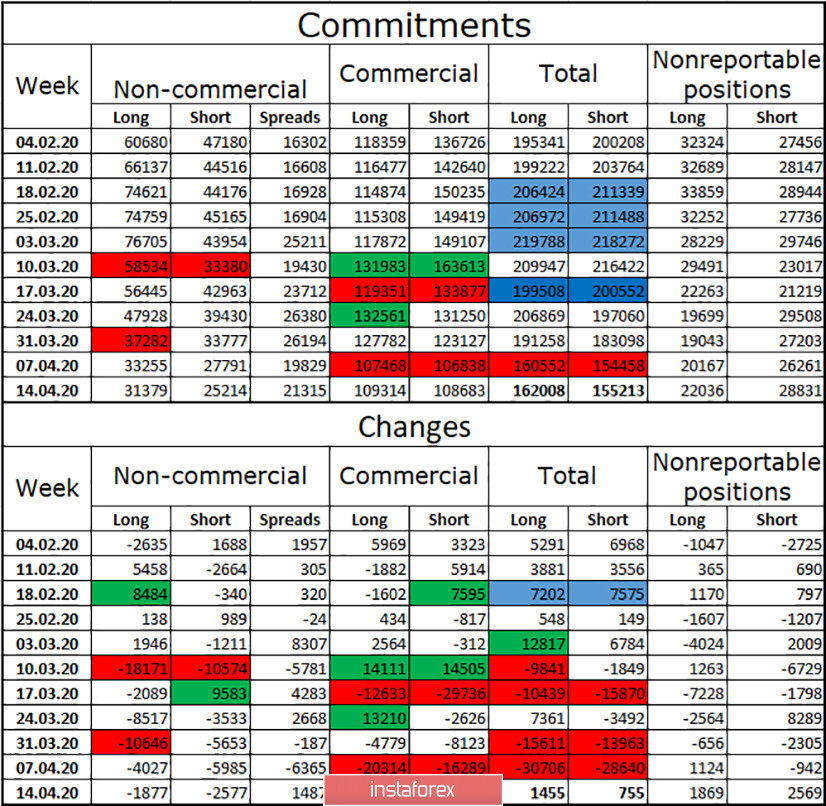
The fresh COT report published on Friday showed that demand for the pound advanced a little bit. The total increase was only about 3,000 contracts for both Short and Long deals. Thus, the pound seems to remain an extremely unattractive currency for large banks and companies. For example, speculators have now opened the minimum number of contracts for long positions – only about 80,000. The total number of contracts is now about 320,000. For comparison, the total number of contracts for the euro is more than a million. There were no major changes during the reporting week. For all categories of traders, changes are minimal plus or minus 2,000-3,000. The bulls are now holding the upper hand. The total number of long deals exceeds short deals by 7,000.
Outlook for GBP/USD and trading recommendation
It is recommended to open sell deals on the pound sterling with a target of 1.2095 if it closes under the correction level of 61.8% on the 4-hour chart. Buy deals can be opened at 1.2777 (and, consequently, closing all short deals) if the pair breaks above the trend line on the hourly chart.
Terms:
"Non-commercial" - major market players: banks, hedge funds, investment funds, private, and large investors.
"Commercial" - commercial enterprises, firms, banks, corporations, companies that buy currency not for making a speculative profit, but to ensure current economic activities or export-import operations.
"Non-reportable positions" – average traders who do not have a significant impact on the price.





















